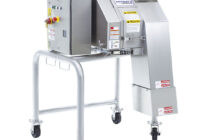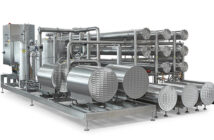While the high profile threats surrounding baby formula tampering in the news recently may be an extreme example of an unexpected brand crisis in the food industry, the story is a timely reminder that every Kiwi food manufacturer and producer needs to be prepared for the worst case scenario.
Product tampering occurs infrequently, but more common are product defects that have been missed on the factory floor and subsequently require a recall or safety notice for consumers. It’s a situation no business owner or manager wants to imagine – but imagining it, and planning for it, is exactly what anyone in the food technology world needs to do, says Impact PR director Fleur Revell.
“It is human nature to hope for the best outcome, but unfortunately mistakes do happen,” says Revell, who has worked with numerous FMCG companies throughout New Zealand, and is an expert in crisis management. “When you get that first call from the media wanting to know more about a problem, it’s essential that you are prepared to deal with it in a way that reflects positively on your brand.”
No matter whether there has been a breakdown in your company’s processes, or if there is a threat to your product from an outside source, you’ll need to be able to clearly explain where the issue lies, how you are addressing it, and give clear advice to the public.
Here, Revell looks at how to best prepare for such a scenario in order to protect your brand’s reputation.
You can never be too prepared
Ensuring your food products are safe and not likely to bring your brand into disrepute is obviously a fundamental part of good business that most Kiwi companies recognise, but all the best intentions in the world can’t prevent an unforeseeable crisis situation.
“Every company needs a plan on how to manage communication if there is a product defect or tampering situation,” Revell says. “Each plan should cover things like which channels will be used to communicate with customers, who will speak to the media if there are interview or information requests, and what part social media might play in that communication.”
Including this as part of your strategic planning for the year will give senior business leaders a clear direction and starting point if such an issue arises. “You can develop a plan like this in-house or with your PR representatives, but it should be comprehensive and kept up-to-date at all times with names of current staff members.”
Who is the right person to speak to media?
One of the most important decisions for a company to make is who will be the spokesperson if a problem comes to the attention of media and/or the general public. “The CEO should almost always be the person who appears in interviews and is quoted in any communication,” says Revell.
Frontline or support staff should be made aware that any enquiries or comments will need to come from the designated representative to ensure that there is a consistent message communicated. “Having someone like the CEO front any interviews also demonstrates the issue is being handled by a person with the ability to change or fix processes that need to be addressed,” Revell explains.
“However, it’s a wise idea to include a team member who knows about specific complicated processes or plant technology inside-out and can explain how that works really clearly,” says Revell.
“This is much better than having the CEO attempt to explain something they don’t fully understand, which may not reassure the interviewer or public that the situation is completely under control.”
Keep it brief
One of the fundamental rules when it comes to dealing with media is to make sure your explanations are concise and to the point at all times. “Decide on your key messages to cover – probably what the situation is, what has caused it, how you are managing it, and what the general public need to know or do – and write them down,” says Revell.
“Everyone is busy, so giving a long-winded explanation of how your food is processed from beginning to end will not serve your business best in the long run. Reporters want to be able to quickly get the key messages from you, and the same goes for customers.”
“Talk to your PR expert about what reporters need to know most, and don’t get carried away with commercial messages – protecting your reputation during a crisis time should be the focus, not promoting a new product or getting your tagline into a news story.”
No matter what the messages are, it’s also extremely important to make sure there is minimal jargon or technical terms used in any communication, she adds. “Explain everything in simple terms so people understand the situation and don’t think you are trying to hide behind tricky language.”
Be honest at all times
It may not be pleasant to admit that your company has made an error when it comes to processes or the security of products, but Revell warns that not being open and honest about the situation is far more dangerous than admitting fault and dealing with the fallout.
“Owning up to an issue quickly and being honest about how it came about is probably the most important thing any company can do,” she advises. “If you delay an explanation, or tell a half-truth that is later exposed, you will likely do far more damage to your brand as media and customers question the company’s ethics.”
“A clear and consistent flow of information will demonstrate your company’s commitment to providing Kiwi consumers with the very best quality food products, and reflect positively on your brand despite a crisis event.”
Fleur Revell is an ex-journalist and broadcaster who has more than 20 years’ experience in the media and public relations industry. She has worked for numerous outlets including the New Zealand Herald, TVNZ and TV3, and is now director of boutique Auckland agency Impact PR. She specialises in PR and marketing, and has represented leading brands such as Fresh Up, Domino’s Pizza, Just Juice, Allan Scott Winemakers and Jesters.




























































































